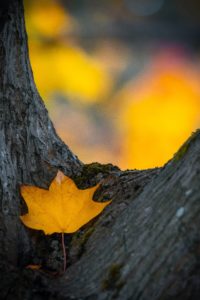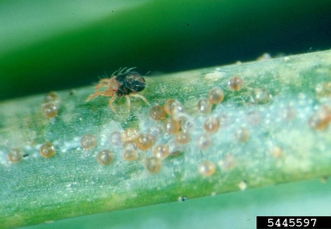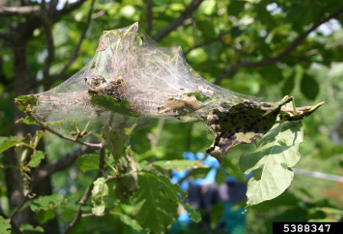
Have you ever asked yourself, “What happens to bugs in the winter?”
Has your landscape experienced pest infestations and left you wondering “What can I do to prevent this from happening again?”
As other recommended fall treatments (such as biostimulants or mulching) do, fall dormant oil spray proactively protects your landscape. In particular, the spray protects against overwintering insects.
Of course, now you may be wondering, “What are overwintering insects and what is dormant oil spray?” Continue reading to find out what they are and what the treatment can do for your landscape.
Overwintering Insects: Where do bugs go in the winter?
Depending on the species, insects will hibernate, migrate, or overwinter. Those which survive through the winter are said to “overwinter” through the cold season.
Common overwintering insects in our area include:
• Mites
• Scale
• Aphids

Ward Strong, BC Ministry of Forests, Bugwood.org

William Fountain, University of Kentucky, Bugwood.org


Here’s the problem: overwintering insects can leave an unpleasant surprise in the spring. When overwintering insects appear in the spring, homeowners typically realize the pests have wreaked havoc on their landscape. Even worse, once the problem attacks, it can’t be reversed.
Proactive care is the best care. For protection against overwintering insects, the most effective control is dormant oil spray.
What is dormant oil spray and what does it do?
Looking for an environmentally sound treatment to combat overwintering insects? This method gets our seal of approval.
What is dormant oil spray?
The horticultural spray is an all-natural, organic, and environmentally safe horticultural spray. Unlike other methods, the spray is safe for people, animals, and nature – including beneficial insects!
What does dormant oil spray do?
The organic horticultural spray prevents insect issues and smothers pests that are currently on foliage, tree bark, and bushes. As damage is irreversible, the organic spray is the best control and preventative treatment against infestation.
Which species are dormant oil spray recommended for?
We recommend the horticultural treatment to plants that have a history of or are prone to certain pest infestations; specifically, mites, eastern tent caterpillars, scales, and aphids.
Susceptible plants include:
- Ornamental trees
- Large evergreen leaf plants
- Nellie Stevens Hollies
- Cherry Laurels
- Magnolias
- Camellias
- Euonymus
- Crape Myrtles

Most importantly, if you notice black sooty mold on your plants, apply the horticultural oil. This symptom indicates insects are feeding on your plants; applying the treatment will help control the population before it gets worse.
INTERESTED IN DORMANT OIL SPRAY?
OR CALL 703.573.3029
When is the best time to use a dormant oil spray?
Fall season is the best time to get the oil spray applied to your landscape. Typically, the organic treatment is done once or twice in the dormant season.
By starting the treatment in the fall, your landscape will be flourishing in the spring – and your plants will thank you for it (consider it a nice Thanksgiving gift for your greenery!).
To ensure your landscape receives the most environmentally friendly, safe, and efficient treatment, reserve an appointment with one of our Certified Arborists online or call us at 703.573.3029.


